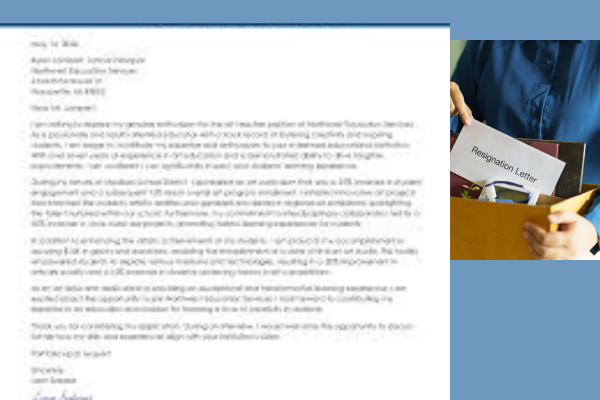Meta description
Write a Powerful Motivation Letter for a Teaching Job Learn everything there is to know about how to write a motivational letter with our complete guide, step-by-step process, & tailored tips!

Meta Keywords

motivation letter, how to write a motivational letter
Applying for a teaching position can be competitive, and a well-crafted motivation letter can make a difference in standing out. A motivation letter not only showcases your qualifications but also conveys your passion for education and dedication to helping students thrive. Here, we’ll walk you through the essential components of a compelling motivation letter, along with tips to make your application shine.
The Significance of a Motivation Letter in a Teaching Position

Write a Powerful Motivation Letter for a Teaching Job A motivation letter for a teaching position serves as an introduction to the school’s hiring committee, providing a brief overview of your character, zeal, and commitment to teaching. A motivation letter highlights your dedication to creating an engaging learning environment and shows why you are the perfect fit for the particular role, in contrast to a resume, which contains experiences and skills.
Your motivation letter can highlight your enthusiasm for the position and how your teaching philosophy fits with the school’s ideals, regardless of your level of experience. A detailed approach to writing an exceptional letter that highlights your special qualities as an educator may be found below.
Step 1: Make a formal introduction first.
Start your letter with a polite salutation, such as “Dear Hiring Committee” or “Dear [Principal’s Name],” addressed to the principle or hiring committee. Give a brief introduction of yourself and mention the particular teaching position you are looking for. A succinct, polished introduction creates a rapport with the reader and sets the tone.

For instance, “Dear Hiring Committee,
I am writing to express my sincere interest in the position of [specific teaching position] at [school’s name]. As an enthusiastic and dedicated educator with a passion for inspiring students and creating a positive classroom environment, I am excited about the opportunity to bring my skills and experience to your esteemed institution.”
Step 2: Emphasise Your Experience and Skills in Teaching
Highlight your relevant teaching experiences and the particular abilities that make you the best person for the job in the major body of your essay. If you have taught in a similar environment before, for example, give examples of how you controlled classroom dynamics, used creative teaching methods, or helped students succeed. Mention any specialities you may have, such as developing curricula, teaching differently, or integrating technology in the classroom.
Example Paragraph: “I have successfully created and executed captivating lesson plans that are suited to a variety of student needs, having taught [certain subjects/age groups] for over [X years].” I oversaw projects at [name of prior school] that raised student achievement and promoted a welcoming, cooperative atmosphere. My experience utilising online tools to improve Learning outcomes have given me the ability to use contemporary resources in my instruction, which keeps students interested and aids in the development of critical abilities.
Step 4: Express Your Passion for the Particular School
Prove that you have done your homework on the institution and that you are sincere about wanting to work there. Talk about particular projects, principles, or programmes that drew you to the school. Writing a letter specifically for the school demonstrates your sincere desire to become involved with their community.
Example Paragraph: “Your dedication to [particular programme or initiative, such as ‘fostering a holistic approach to education’ or ‘promoting STEM learning for young students’] is what really drew me to [school’s name].” I am thrilled about the prospect of adding to this encouraging community and am inspired by the way your school prioritises [insert value here, such as “inclusivity” or “student well-being”).
Step 5: Make a compelling closing statement to wrap up.
Expressing your excitement for the position and your hope for an interview can help you close your motivation letter on a strong note. Remember to express gratitude to the hiring committee for taking a look at your application.
Closing Example: “I appreciate your consideration of my application. I can’t wait to join [school’s name] and share my love of teaching and dedication to student achievement. I’m excited for the chance to go into further detail about how my background and paedagogy fit with the objectives of your school. Feel free to get in touch with me whenever it’s convenient for you. I appreciate your time and thought.
Last Words on Writing an Effective Motivation Letter
Make sure there are no spelling or punctuation errors by carefully proofreading. A professional letter is one that is neat and well-written.
Employ Professional Language: Steer clear of extremely complicated terminology and maintain a formal yet sincere tone.
Be Particular: To show that you genuinely care about each school, customise your letter.
The secret to a successful teaching career may lie in a motivation letter. Presenting oneself as an enthusiastic, accomplished teacher who shares the school’s ideals will help you stand out and land an interview.
